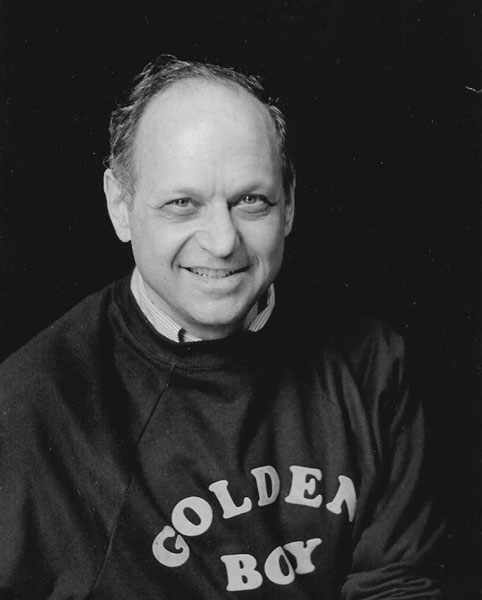
May 19, 2024: Theatre Yesterday and Today, by Ron Fassler.
The Cherry Orchard is one of my favorite plays. I was first introduced to the writings of Anton Chekhov in college fifty years ago and I instantly fell in love with the deep underpinnings and unexpressed emotions of his distinctly Russian characters. His plays are both universal and for the ages, so attention must be paid when a director like Benedict Andrews comes along. Having had considerable success a dozen years ago with a Three Sisters set in 2012 Russia, complete with four-letter words and the cast singing a Kurt Cobain number, he has now hit upon a way into The Cherry Orchard that is nothing short of a cause for celebration. Currently in a limited engagement at the unique playing space of the Donmar Warehouse in London, I was an ear-to-ear grin from almost the moment it started. Not only was it truly funny much of the time (which would have delighted Chekhov no end), but here was a director committed to the playwright’s intentions and not just showing off, throwing weird ideas around in the hopes something might land. Having also done its translation, which I generally liked a great deal, Andrews sometimes shoots for the moon and doesn’t quite achieve it. But considering how many things do work—and brilliantly so—I wound up thrilled at the audaciousness of it all.
I’ve seen multiple stagings of The Cherry Orchard in New York, Chicago and London, and even one in Russian presented at the Brooklyn Academy of Music. With the Lopakhins of Albert Finney, Raul Julia, Peter Riegert, and Alfred Molina (in two separate productions) never far off my mind, I was dazzled here by Adeel Akhtar, notable from the TV series Killing Eve and the film The Big Sick. His passionate take on the character forms an ideal relationship with German actress Nina Hoss as Ranevskaya (a revelation), who skillfully navigates a mix of joy, terror, and narcissism. Yes, she possesses the essential star quality necessary to portray Ranevskaya, but more importantly, the director has surrounded her with a company that works as one; the key to playing Chekhov that is often prayed for if rarely achieved. What Andrews does with these actors is exemplary, with moments obviously discovered in rehearsal and then polished to a diamond.

For anyone unfamiliar with the plot, it can be summed up in two lines: A family out of touch in their own time are unprepared for the changing ways that marked the end of the 19th century. The beautiful aristocrat Lubov Ranevskaya, frozen in fear over losing what’s left of the only life she’s ever known, is emotionally ill-equipped to deal with the auctioning off of her failing estate due to unpaid bank loans.
This production shares the same disregard for time and place as the Chekhov that opened last month at Lincoln Center, the Lila Neugebauer-directed Uncle Vanya. Though I enjoyed that production, it was mostly due to its fine cast. At Donmar, Andrews is light years ahead with his adaptation, set on the empty stage devoid of any furniture. Even though it leaves the actors to stand around a lot, it doesn’t make things static. To the contrary, it instead forces everyone to feel as if they don’t quite know what to do, which is exactly their status. They wander and prevaricate and make a mess of things. Perfect. Even when the action takes place in the woods, it’s all played out on a lush carpet, which feels right for these privileged and clueless people who cling to comfort and are invariably lost when confronting the real world. When the estate is sold, all the carpet is removed and piled up onstage creating a barrenness that is striking as they are forced to exit their home. The intimacy of the Donmar, set in the round in this configuration, is only five rows deep (mine was only two). What that does is make the audience feel almost complicit in the action, especially as the actors have assigned seats for when they’re not in a scene (Ms. Hoss sat right in front of me when she was "offstage"). My knowledge of the play made me wonder how Gayev (splendidly essayed by Michael Gould) would do his famous speech to the bookcase without a bookcase. Easy. He gestures to an elderly man in the front row and brings him up on stage and performs the entire speech to him. Perhaps this solution isn’t for everyone, but I laughed at the boldness of the choice which, like so many others in Andrews’ staging, are both unexpected and thoroughly original. Bravo.

Again, there isn’t a weak link in the cast though a few stand out and deserve their praises sung. The nearly ninety-year-old June Watson brings comic flair and poignancy to the aged servant Firs, my first experience with it being played by a woman. Her addled mumblings, with juicy “fuckwits” tossed about, had me howling. Yasha, the peasant who fancies himself a dandy, is gloriously costumed by Merle Hansel in an outfit that makes the actor playing him (Nathan Armarkwei Laryea giving a droll performance) a dead ringer for Sacha Baron Cohen’s Ali G. I also found Éanna Hardwicke, in the difficult role of the clownish klutz Yepikhodov a wonder. He also has the best squeaky shoes I’ve ever encountered.

All in all, this Cherry Orchard made my heart sing. If Benedict Andrews gets around to Uncle Vanya and The Seagull, I would seriously consider whatever it takes to hop a plane and see what he comes up with. His love for this master playwright go hand-in-hand with his talents and for that this Chekhov enthusiast is entirely grateful.

The Cherry Orchard is playing April 26, 2024 - June 22, 2024 at the Donmar Warehouse in Central London. Click on the link for further information.





















Write a comment ...